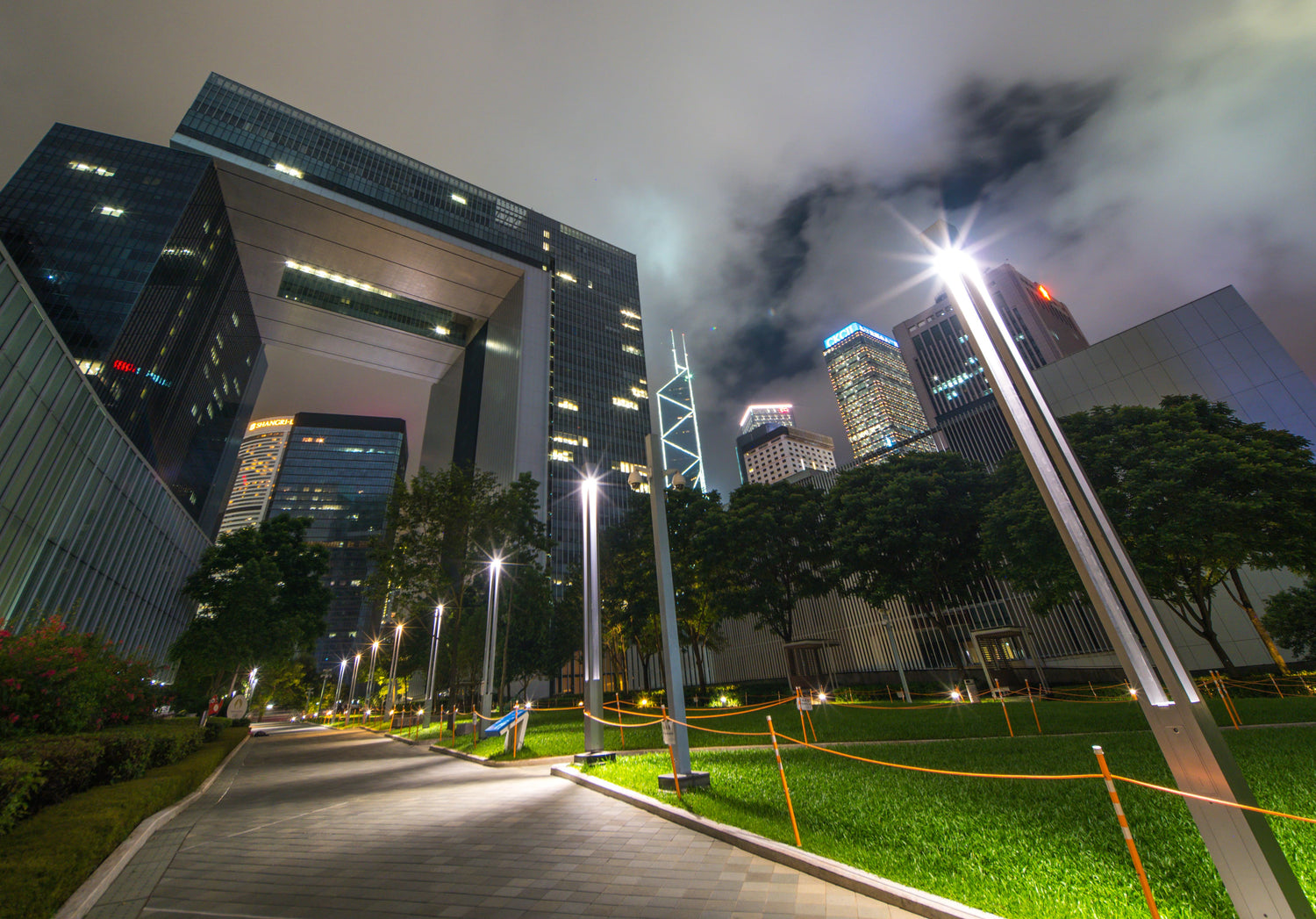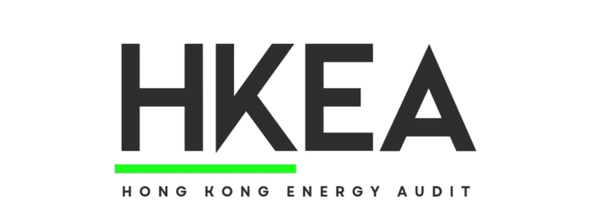

PROFESSIONAL ENGINEERING & REGISTERED ENERGY ASSESSOR TEAM
ONE-STOP ENERGY AUDIT SOLUTION
HONG KONG ENERGY AUDIT SERVICES | ENERGY SAVING PROJECT
Hong Kong Energy Audit (HKEA) has a team of professional engineers and registered energy assessors responsible for providing energy audit services to clients in need. We prepare energy audit reports for building owners or stakeholders and offer energy-saving solutions. This not only helps buildings comply with legal requirements but also aims to lower overall electricity consumption, reduce operational costs, and achieve energy-saving and emission reduction targets.
Since the full implementation of the Buildings Energy Efficiency Ordinance on September 21, 2012, new buildings and existing buildings undergoing "major retrofitting works" must ensure that their building services and installations meet the minimum energy efficiency standards and design requirements outlined in the Building Energy Efficiency Code.
In August 2023, amendments to the Buildings Energy Efficiency Ordinance were proposed (pending approval), which stipulate that owners or stakeholders of thirteen categories of buildings and data centers must conduct an energy audit every five years for four types of relevant "central building services installations."
Hong Kong Energy Audit (HKEA) provides compliant energy audit services carried out by a professional team of engineers and registered energy efficiency assessors. Building owners or stakeholders can improve and reduce the overall electricity consumption of their buildings through energy audit reports and our energy-saving engineering recommendations, thereby lowering operational costs and enhancing sustainability.
Collapsible content
The thirteen types of buildings specified in Buildings Energy Efficiency Ordinance (BEEO)
- commercial buildings.
- Those parts of a mixed-use building that are not used for residential or industrial purposes.
- Hotel or guesthouse.
- Common areas of residential buildings.
- Common areas of that part of a composite building used for residential or industrial purposes.
- Common areas of industrial buildings.
- A building occupied mainly for educational purposes.
- Buildings occupied mainly for community purposes (including community halls and social service centers), and comprehensive-use buildings occupied for 2 or more of the above places.
- Buildings occupied mainly for municipal purposes (including markets, cooked food centres, libraries, civic centers or cultural centers and indoor sports venues), and composite-use buildings occupied for 2 or more of the above places.
- Buildings occupied primarily for medical and health care services (including hospitals, clinics and rehabilitation centres).
- A building owned by a government used primarily to house persons during the performance of any of its functions.
- Airport passenger terminal.
- Railway station.

PROFESSIONAL ENERGY AUDIT TEAM
Our dedicated team of expert engineers specializes in conducting energy audits for the 4 major building services systems. Beyond merely gathering operational data and preparing essential documentation to meet BEEO standards, we go the extra mile to introduce cutting-edge solutions that unlock the building's full energy-saving potential.

ENERGY SAVING RECOMMENDATION
Based on the information and data collected, we will identify the performance gap and provide pragmatic energy-saving solutions. We will classify the energy-saving measures into three categories based on the level of investment and the disturbance on the building operation. Should there be a need to realize advanced energy savings for better operational cost savings, we may conduct an advanced scientific energy diagnosis and provide solutions as a one-stop shop.

ENERGY CONSULTANCY SERVICES
Energy savings in buildings can effectively reduce operational costs and expenses. According to statistical data, energy savings (particularly electricity) can range from 10% to over 30% and even more. Not only does it save energy consumption and operational costs, but it also contributes to corporate sustainability goals, as well as the carbon neutrality targets of the Hong Kong Government and the Chinese national agenda. Please feel free to contact our energy consultants for comprehensive energy consultancy services - for quotations and appointments.

REGISTERED ENERGY ASSESSOR
The signature verifier of the energy audit report must hold the qualification of a Registered Energy Assessor (REA). There are approximately 1,400 people in Hong Kong who have relevant qualification. Regarding the validity of the identity of Registered Energy Assessor in HKEA , you can Check from the EMSD website.

THE LATEST NEWS ON ENERGY AUDIT
Building energy efficiency and emissions reduction is one of the major goals for countries around the world. To optimize energy saving policies, the content of energy audits will continue to be revised and updated. We will keep updating and revising the content to provide you with the latest information on energy audits.
FOUR MAJOR TYPES OF BUILDING SERVICES INSTALLATIONS
The Building Energy Efficiency Ordinance specifies that owners of buildings (whether new or existing buildings) must appoint a registered energy efficiency assessor every 10 years to conduct assessments for the following four major types of building equipment based on the latest version of the Energy Audit Code. Installation, conduct energy audit:
-

AIR CONDITIONING UNIT
• Air conditioning equipment (chiller) and heat pump efficiency coefficient
• Air distribution system fan power
• Water pipe system friction loss
• Thermal insulation
• Energy efficiency system control
• Energy metering -

LIGHTING FIXTURES
• Lighting power density
• Lighting controls (e.g. switch gear)
• Automatic lighting control -

ELECTRICAL DEVICE
• Motor efficiency
• Distribution losses
• Total power factor
• Total harmonic distortion rate
• Metering and monitoring facilities -

LIFTS & ESCALATORS
• Electrical power
• Total power factor
• Total harmonic distortion rate
• Measuring and monitoring facilities
• Elevator decorative load
• Turning off the ventilation and air-conditioning system when the elevator is idle
• Elevator feedback braking
• Elevator cabin lighting control
• Escalator automatic deceleration

A required course to become a Chartered Engineer (CEng) (Instructed by CIBSE interviewer)

HKEA Audit Team Qualifications:
1. More than 13 years of experience in the field of sustainable development, focusing on energy performance optimization.
2. Possess the qualification of Registered Energy Assessor (REA) and have rich background in building services engineering.
3. Expertise in implementing and optimizing energy efficiency measures in building systems.
4. Chartered Engineer with extensive technical and practical knowledge.
5. Member of the Hong Kong Green Building Council (HKGBC) committee, contributing to industry standards and practices.
6. Guest lecturer at the Chinese University of Hong Kong (CUHK) and the University of Hong Kong (HKU) to cultivate future industry leaders.
7. Actively participate in public speaking and present at industry seminars.
8. Published many papers and articles on sustainable development.
9. Proven track record of leading successful sustainability projects and achieving significant energy savings.
10. Passionate about driving innovation and continuous improvement in the field of sustainable development.
LATEST INFORMATION SHARING
View all-

【甚麼是註冊專業工程師?與特許工程師有甚麼分別?】
註冊專業工程師(Registered Professional Engineer, R.P.E) 身份資格由香港工程師註冊局根據《工程師註冊條例》頒發,代表該工程師透過嚴格審核,並具備專業知識、經驗,並獲得香港政府認可,可以執行與安全、技術有關的工程項目及簽署相關文件;特許工程師(Chartered Engineer) 身份資格由工程學會頌發,同時亦可晉身該工程學會會員,或透過互認獲取更多不同學會的會員身份,特許工程師同樣是一種專業認可,包括該工程師在工程技術、管理能力同職業操守方面等,而且可以擔任高級技術或管理職位,特許工程師的國際認可性高,兩者有甚麼分別?
【甚麼是註冊專業工程師?與特許工程師有甚麼分別?】
註冊專業工程師(Registered Professional Engineer, R.P.E) 身份資格由香港工程師註冊局根據《工程師註冊條例》頒發,代表該工程師透過嚴格審核,並具備專業知識、經驗,並獲得香港政府認可,可以執行與安全、技術有關的工程項目及簽署相關文件;特許工程師(Chartered Engineer) 身份資格由工程學會頌發,同時亦可晉身該工程學會會員,或透過互認獲取更多不同學會的會員身份,特許工程師同樣是一種專業認可,包括該工程師在工程技術、管理能力同職業操守方面等,而且可以擔任高級技術或管理職位,特許工程師的國際認可性高,兩者有甚麼分別?
-

Three types of professionals provide accredited...
The "Buildings Energy Efficiency (Amendment) Bill 2025" passed its third reading in the Legislative Council in 2025. The revised Buildings Energy Efficiency Ordinance has several key features, including the inclusion...
Three types of professionals provide accredited...
The "Buildings Energy Efficiency (Amendment) Bill 2025" passed its third reading in the Legislative Council in 2025. The revised Buildings Energy Efficiency Ordinance has several key features, including the inclusion...
-

[Chartered Engineer One-on-One Course]
Most high-tech and management-level engineering positions in Hong Kong, or those requiring independent design, project leadership, and innovative solutions, typically require applicants to hold a Chartered Engineer (CE) qualification. HKEA...
[Chartered Engineer One-on-One Course]
Most high-tech and management-level engineering positions in Hong Kong, or those requiring independent design, project leadership, and innovative solutions, typically require applicants to hold a Chartered Engineer (CE) qualification. HKEA...







